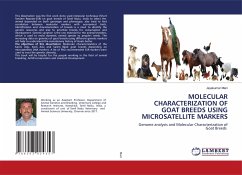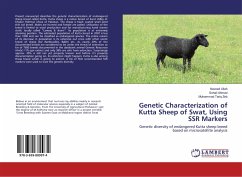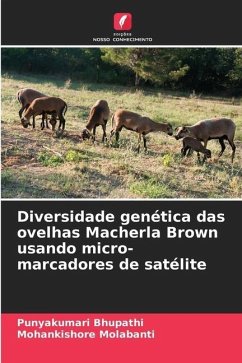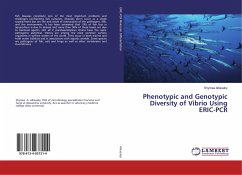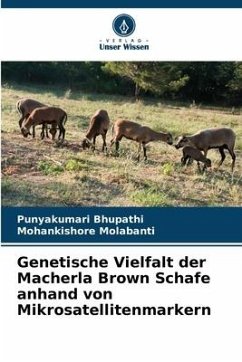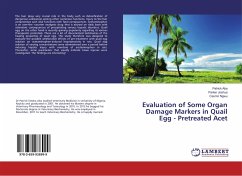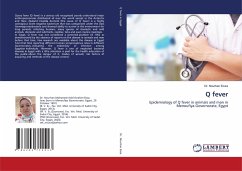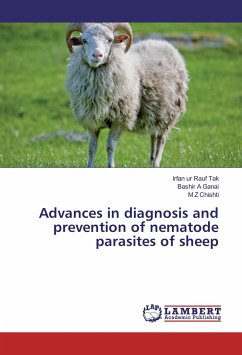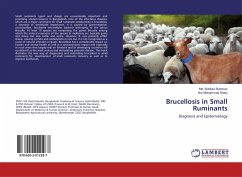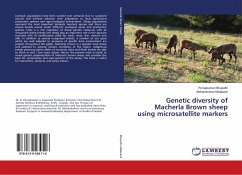
Genetic diversity of Macherla Brown sheep using microsatellite markers
Versandkostenfrei!
Versandfertig in 6-10 Tagen
33,99 €
inkl. MwSt.

PAYBACK Punkte
17 °P sammeln!
Livestock populations have been evolved over centuries due to sustained natural and artificial selection with adaptation to local agricultural production systems and agro-ecological environment. Sheep populations represent the most important domestic livestock species and there are several breeds reared under different ecological zones and production systems. India is a rich repository of sheep genetic resources with 42 recognized sheep breeds and sheep play an important role in the agrarian economy with its multifaceted utility for meat, wool, skin, manure and milk. In addition to several rec...
Livestock populations have been evolved over centuries due to sustained natural and artificial selection with adaptation to local agricultural production systems and agro-ecological environment. Sheep populations represent the most important domestic livestock species and there are several breeds reared under different ecological zones and production systems. India is a rich repository of sheep genetic resources with 42 recognized sheep breeds and sheep play an important role in the agrarian economy with its multifaceted utility for meat, wool, skin, manure and milk. In addition to several recognized breeds, a number of eco types which are well adapted to pressures of specific local environment are present throughout the globe. Macherla brown is a popular local sheep well adapted to adverse climatic conditions of the region. Indigenous breeds possess putative alleles of economic value and these breeds are able to thrive in zero / low input system. Hence, the present work is useful to reveal genetic polymorphism of Macherla brown sheep and provides the basis for conservation and improvement of this sheep. The book is useful for researchers, students, and policy makers.



